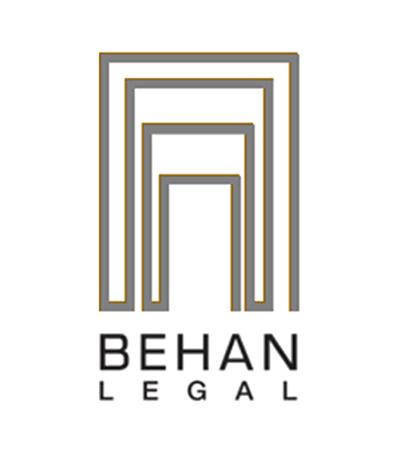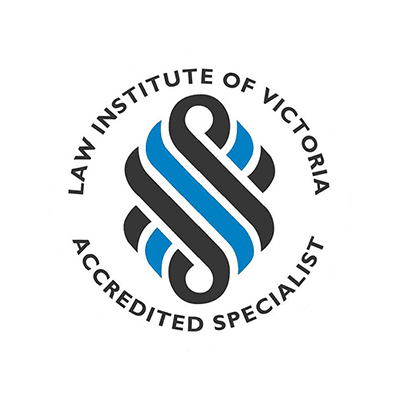Body Corporate Revamp
Most people are aware that when a strata subdivision is registered, a body corporate comes into existence and each lot owner becomes a member. The body corporate had the responsibility to maintain the common property, insurance of the buildings and public liability insurance.
The Owners Corporation Act 2006 having started on 31 December 2007 has made a number of changes to the administration of a body corporate and sets out various powers and obligations.
NEW DESCRIPTION
A body corporate is now the “Owners Corporation”
RULES
The legislation prescribes new model rules, which become the rules of an Owners Corporation unless that Owners Corporation makes and adopts its own rules.
DISPUTES
Previously, there were difficulties in taking legal action against the property owner of a lot where a tenant or owner made a complaint about the conduct of other persons in a multi-unit building, or over the condition of the building.
Under the new laws:
- The Owners Corporation is responsible for the repair and maintenance of the common property and for the services related to the common property;
- The Owners Corporation can agree to the provision of services to lot owners or occupiers;
- An occupier (or tenant) of a lot must comply with and is bound by the rules of the Owners Corporation. However, a tenant must be given a copy of the rules at the commencement of the tenant’s occupation, and
- Lot owners are given the right to inspect records of the Owners Corporation and to take copies.
3-STEP DISPUTE RESOLUTION PROCESS
If the Owners Corporation does not have its own dispute resolution rules, the procedure set out in these model rules applies:
- Initial complaints are by way of an internal process to the Owners Corporation which will decide whether to take action on a complaint by way of notice that requires rectification of a breach, and an application to VCAT;
- If the dispute relates to the operation of the Owners Corporation, and another owner or manager, a complaint can be referred to the Director of Consumer Affairs who may require mediation or conciliation, and
- If the dispute relates to a breach of an obligation under the Act or regulations for the rules of the Owners Corporation, the matter may be taken to VCAT, however the internal dispute resolution process must first have been followed.
VCAT POWERS
This tribunal can:
1) Hear an Owners Corporation dispute where there is a breach of the rules or the Act;
2) Hear claims from owners, managers, former owners and former occupants;
3) Order someone to do, or refrain from doing something, and
4) Impose a penalty of up to $250.00 for failure to comply with the rules.
COMMITTEES
Committees are directly responsible for the delivery of day-to-day functions such as financial management, property maintenance, enforcement of rules, complaint handling etc. The committee acts as the Owners Corporation between general meetings, keep minutes of meetings, and provide reports at every general meeting.
The Owners Corporation can delegate such powers it chooses to the committee.
A chairperson and secretary are to be elected and they have specific duties to carry out. The delegation of powers must be properly set out with the appropriate evidence of the appointment.
RULES OF THE OWNERS CORPORATION
From 31 December 2007, each Owners Corporation has the power to make its own rules. The existing rules will continue to apply if they are not inconsistent with the Owners Corporation Act and Regulations.
Committees should commence a process of reviewing their current rules and include grievance procedures, health safety, and security, use of common property, behaviour of persons, notices and other areas set out in Schedule 1 of the Owners Corporation Act.
FEE NOTICES
If invoices for fees are not set out in the approved form, and sent out at least 28 days before they are due, the Owners Corporation may have difficulties in recovering the fees. All invoices must now be in the approved form.
The first and final notice for fees must be in an approved form, set out obligations and rights of the owner, and set out the grievance procedure in case of dispute.
OWNERS CORPORATION REGISTER
An Owners Corporation Register must be established before 30 September 2008 setting out details of the names and addresses of each lot owner, details of the manager, if there is one, lot entitlements and liabilities, dates of amendments to the owners corporation rules, details of notices or orders served on the Owners Corporation by a court or tribunal and details of contracts, leases licences etc entered into by the Owners Corporation, and details of all insurance policies.
MANAGERS
If the Owners Corporation wants to have its affairs administered by a manager, the Owners Corporation Act requires the appointment to be in the approved form or contract of appointment. The powers and duties delegated to the manager must be set out in the approved form or in the contract. Matters requiring special or unanimous resolution or a decision at a general meeting cannot be delegated. Managers must now be registered with a business licensing authority and provide evidence that they have professional indemnity insurance for at least 1.5 million dollars. The managers must report to the committee and the Owners Corporation at each annual general meeting.
OWNERS CORPORATION CERTIFICATE
To enable a more informed decision, purchasers of a unit will now be given more information when purchasing a unit.
Section 32 of the Sale of Land Act requires a vendor to include an Owners Corporation certificate in the Vendors Statement, which is given to a purchaser before the execution of a Contract of Sale. The information set out in the Owners Corporation certificate must include:
1. Fees and charges imposed or proposed for the lot;
2. Insurance;
3. Repairs and maintenance;
4. Funds held by the Owners Corporation;
5. The liability and contingent liability including legal expenses;
6. Contracts, leases, licences, agreements affecting common property
7. Services provided to the lot owners;
8. Legal proceedings, and
9. Details of the manager
The certificate must have annexed to it a copy of the Owners Corporation rules and an information statement together with a copy of all resolutions made at the last annual general meeting with a statement advising that further information can be obtained by inspection of the Owners Corporation Register.
CONCLUSION
The new laws give unit owners a more effective voice in the management of their common property and give Owners Corporation the powers to carry out their functions. However, these powers must be exercised responsibly.
The Owners Corporation Act has made a considerable change to the way Owners Corporation are to operate, their responsibilities and obligations, powers have been given to the Owners Corporation to investigate disputes and to take action and to be more transparent in their operations.
NEED MORE INFORMATION
Behan Legal advises and assists on these important issues. For an appointment, call 03 9646 0344.


